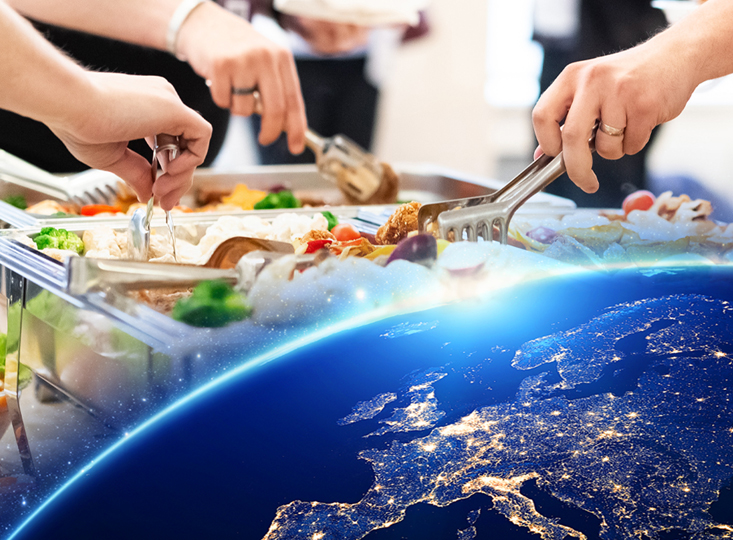Climate
Food industry is globally one of the most significant industrial sectors impacting the climate and environment.
Food companies operates at the heart of the food value chain, where it processes and packages feed, food, and beverage products made from raw materials originating in primary production. These products are delivered to retailers, food service providers, and consumers. The value chain also includes essential input products, such as fertilizers used in agriculture and packaging that protects the products. However, every stage of this value chain causes climate impacts.
On average, over 95% of the greenhouse gas emissions from the food industry occur within companies’ value chains (Scope 3 emissions). The most significant indirect emissions typically arise from the production of raw materials. Direct emissions from food companies themselves (Scope 1 and 2) usually make up only a small portion of total emissions. These direct emissions have steadily decreased in recent years due to energy and material efficiency measures, as well as shifts in fuel use.
Finnish food industry is committed to promoting ambitious climate goals and aims to lead the way in renewing the sector and strengthening its competitiveness. Many Finnish food companies have joined the international voluntary Science Based Targets initiative (SBTi), which sets ambitious science-based targets for reducing greenhouse gas emissions.
Towards carbon neutrality
Achieving climate targets requires determined action and close cooperation throughout the entire food value chain. Finnish food industry has raised its ambition level and aims to achieve carbon neutrality for companies’ own emissions by 2035. To support this goal, the sector has published an updated Low-Carbon Roadmap in June 2024.
Low-Carbon Roadmap
Updated low-carbon roadmap 2035 outlines the progress of climate action in the industry and compiles the most important measures needed to reach emissions reduction targets.
Read more
